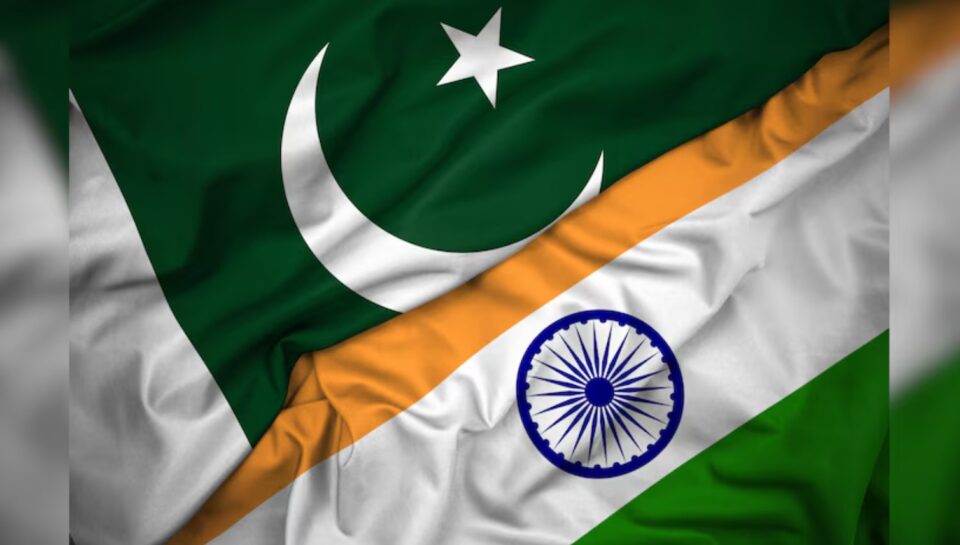India and Pakistan, since partition in 1947, have shared a troubled relationship marked by conflict, distrust, and periodic diplomatic overtures that rarely last. This animosity, long defined by wars and border skirmishes, has in recent years taken a more covert and technologically sophisticated turn.
The aftermath of the recent Pahalgam attack in Kashmir, for which Indian officials quickly pointed fingers at Pakistan, has only deepened hostilities. India used the incident to bolster its anti-Pakistan narrative planned for isolating Islamabad on the international stage.
In response, Pakistan’s military has launched a counteroffensive, not through weaponry, but through intelligence disclosures – a move that seeks to challenge India’s global image and expose what it calls a sustained campaign of state-sponsored terrorism.
On April 29, 2025, the Director General of Inter-Services Public Relations (DG ISPR), Lieutenant General Ahmed Sharif Chaudhry, addressed the nation and the world in a high-stakes and significant press briefing, during which he presented what he described as irrefutable evidence of India’s involvement in terrorism on Pakistani soil.
The declarations were vast and serious, involving India’s premier intelligence agency, the Research and Analysis Wing (RAW), and the Indian Army in orchestrating, funding, and directing attacks through militant proxies across Pakistan. These activities were said to be focused particularly on the provinces of Balochistan and Khyber Pakhtunkhwa, as well as the regions of Azad Jammu and Kashmir (AJK) and Gilgit-Baltistan (GB).
RAW has been systematically funding terror networks and other separatist outfits with the clear objective of destabilizing Pakistan and obstructing development projects like the China-Pakistan Economic Corridor (CPEC), as evidenced by the arrest of Khulbhushan Jadhav – a serving Indian Navy officer – who confessed to coordinating sabotage under RAW’s direction.
The DG ISPR claimed that Indian intelligence, with operational backing from elements of the Indian Armed Forces, has been deeply engaged in orchestrating terrorism through proxies operating inside Pakistan and Kulbhushan Jadhav trial provided one of the concrete example of India’s direct involvement in cross-border terrorism.
One of the most alarming elements of the briefing was the disclosure that the Indian Army has been using drones to transport money, weapons, and encrypted communication devices across the border. These drone missions, according to Pakistani intelligence, are designed to bypass conventional detection and ensure swift and anonymous delivery to militants.
Several such payloads have reportedly been intercepted by Pakistani forces. This use of modern technology marks a significant shift in the methods of cross-border terrorism and represents a growing challenge for Pakistan’s security apparatus.
Perhaps the most striking element of the briefing was the use of audio recordings and encrypted chat messages captured by Pakistani intelligence. The DG ISPR played segments of these conversations between a known terrorist and his RAW/Indian Army handler. Some of these recordings were played during the briefing, capturing direct conversations about targets, attack strategies, and operational support, suggesting a high degree of command and control being exercised from across the border.
The audio clips reportedly contained discussions about target selection, attack timings, and operational instructions, delivered in real time from Indian handler. These were presented alongside chat logs showing digital confirmations of successful attacks, funds received, and new assignments. DG ISPR stressed that these digital and electronic intercepts are unambiguous proof of India’s command and control over these proxy militants.
Adding another layer to this multifaceted campaign, the DG ISPR said India has intensified its use of hybrid warfare, relying heavily on misinformation and disinformation to destabilize Pakistan internally. During the Jaffar Express hostage crisis, Indian-linked networks allegedly disseminated AI-generated content and synthetic videos aimed at discrediting Pakistani security forces and manipulating public opinion.
This use of digital propaganda, combined with kinetic operations and economic subversion, forms what the military spokesman described as a comprehensive campaign of aggression. The presentation of this new evidence including financial documents, intercepted communications, confessional testimonies, and technological analyses of drone activity marks a serious escalation in the diplomatic and security tensions between Pakistan and India.
In light of these serious disclosures, it is imperative that Pakistan adopt a multi-dimensional strategy to respond effectively. The government must take immediate steps to consolidate this evidence into a formal legal dossier and submit it to international bodies, including the United Nations Security Council (UNSC) and the International Court of Justice (ICJ).
At the same time, Pakistan’s diplomatic corps must engage foreign governments, international think tanks, and global media to ensure that this narrative receives serious attention. Foreign policy experts need to proactively challenge the dominant international perception that tends to favor Indian perspectives, especially in Western capitals. This includes producing strategic analyses and conducting briefings that shed light on the realities Pakistan faces due to India’s covert aggression.
Pakistani diplomats must frame these revelations not merely as a bilateral grievance but as a violation of international norms, sovereignty, and peace. They must engage with multilateral organizations such as the OIC, SCO, and ASEAN, making the case that Indian actions pose a direct threat to regional and global stability.
As India continues to project itself as a rising power and a responsible global actor, the contrast between its image and its actions – if proven as presented – must be laid bare. The evidence unveiled by Pakistan’s military leadership not only challenges India’s conduct but also tests the world’s willingness to uphold justice and accountability.
In this moment of heightened tension, clarity, consistency, and international engagement will be Pakistan’s most effective tools – not just to defend its own security, but to reaffirm its commitment to regional peace and lawful diplomacy. This is a critical opportunity for Pakistan to reshape global perceptions through evidence and principle diplomacy – transparency and restraint can help isolate aggression and strengthen its international standing.


